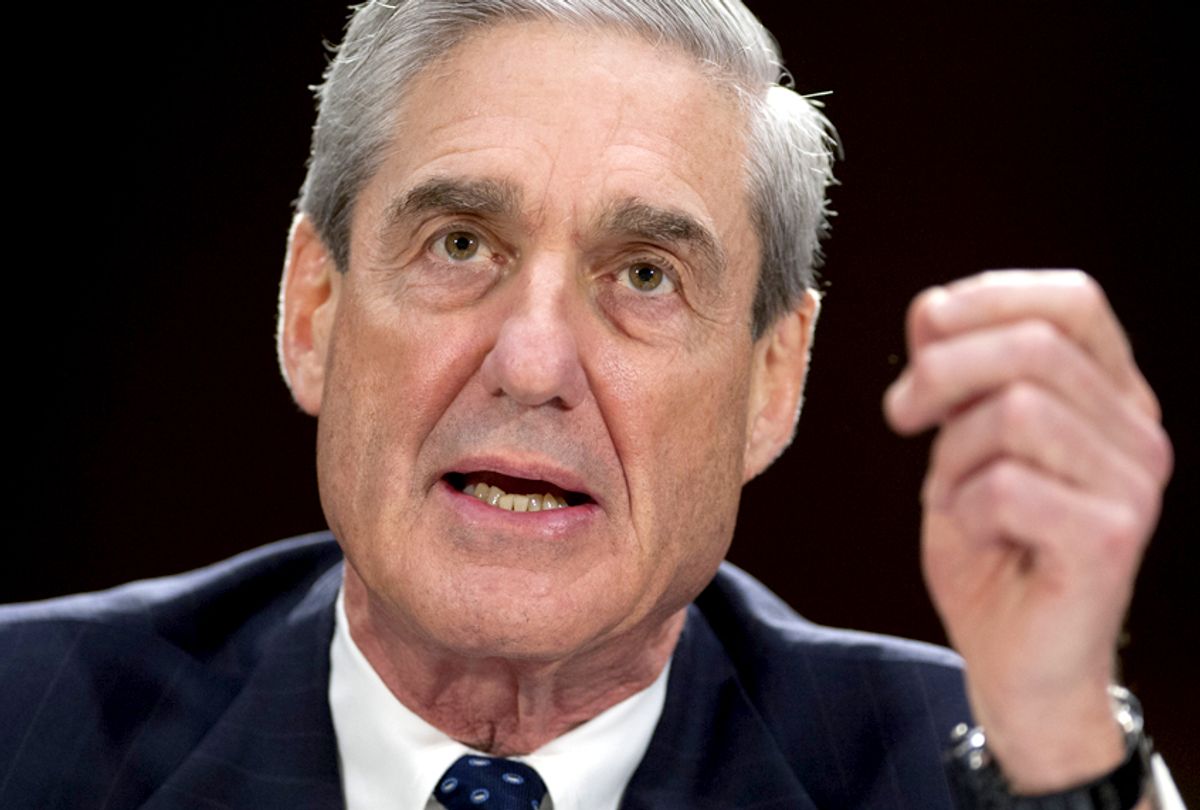On Wednesday, Bloomberg reported that special counsel Robert Mueller is likely to render key findings in the Russia investigation to the Department of Justice shortly after the midterm elections:
Specifically, Mueller is close to rendering judgment on two of the most explosive aspects of his inquiry: whether there were clear incidents of collusion between Russia and Donald Trump's 2016 campaign, and whether the president took any actions that constitute obstruction of justice, according to one of the officials, who asked not to be identified speaking about the investigation.
That doesn't necessarily mean Mueller's findings would be made public if he doesn't secure unsealed indictments. The regulations governing Mueller's probe stipulate that he can present his findings only to his boss, who is currently Deputy Attorney General Rod Rosenstein. The regulations give a special counsel's supervisor some discretion in deciding what is relayed to Congress and what is publicly released.
The Russia investigation, which was first handed off from the FBI to the special counsel in May 2017, has already resulted in numerous guilty pleas, including those of former Trump advisers Michael Flynn and George Papadopoulos, and convictions against former Trump campaign chair Paul Manafort. Michael Cohen, the ex-Trump attorney who was convicted of bank fraud and tax evasion in a separate investigation by federal prosecutors, is reportedly also cooperating with Mueller, as is Trump organization CFO Allen Weisselburg.
It is unclear what stage the investigation is at, exactly. However, the pressure from the DOJ to finish the probe comes after numerous complaints from Republicans about how long the investigation is taking — even though past investigations of a similar scope have taken years.
Once Mueller and Rosenstein deliver their report, Congress will be able to do what it deems appropriate with the information, including further investigation and possibly impeachment. But what they will do almost certainly hinges on which party controls Congress next year.


Shares